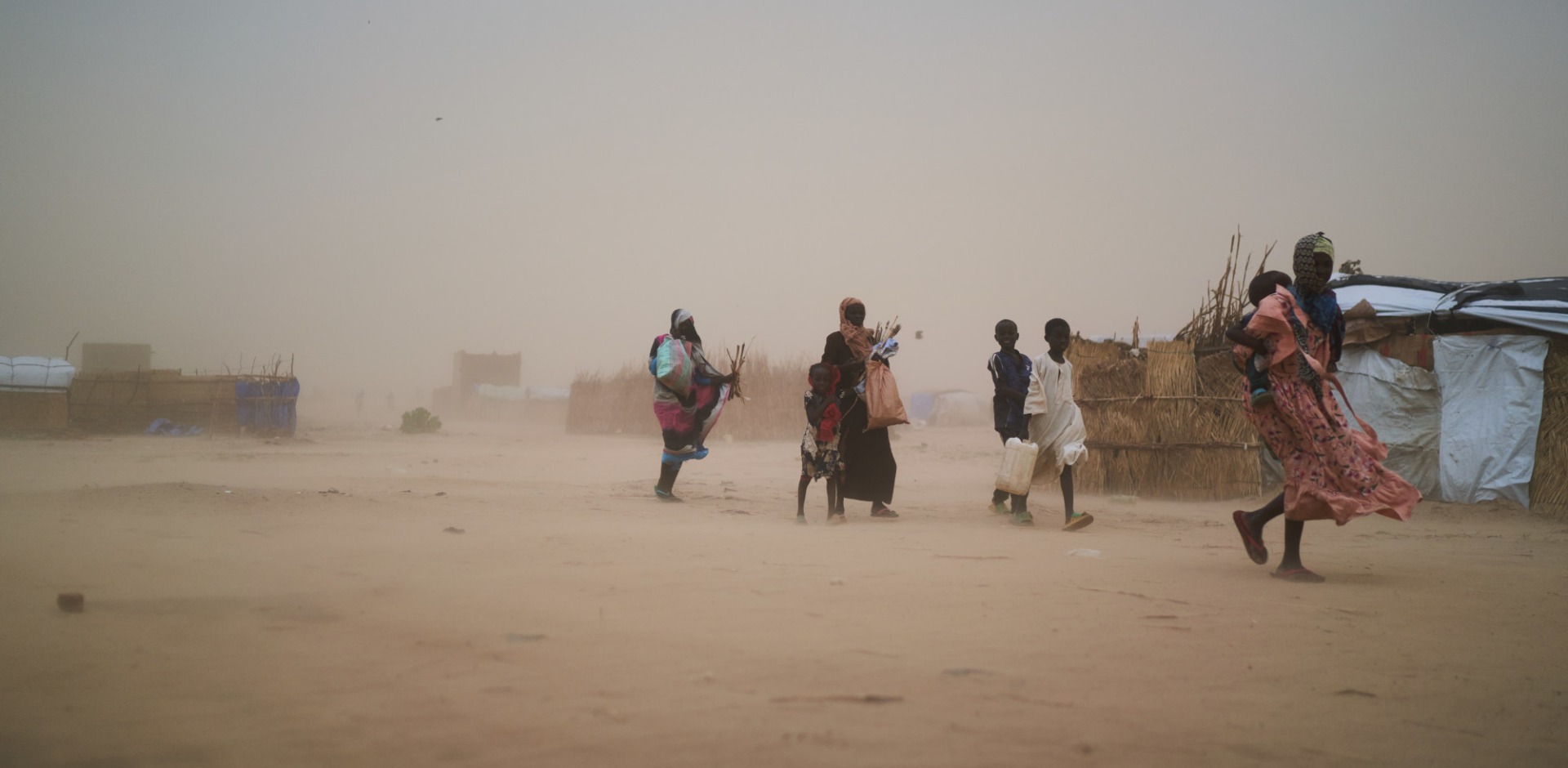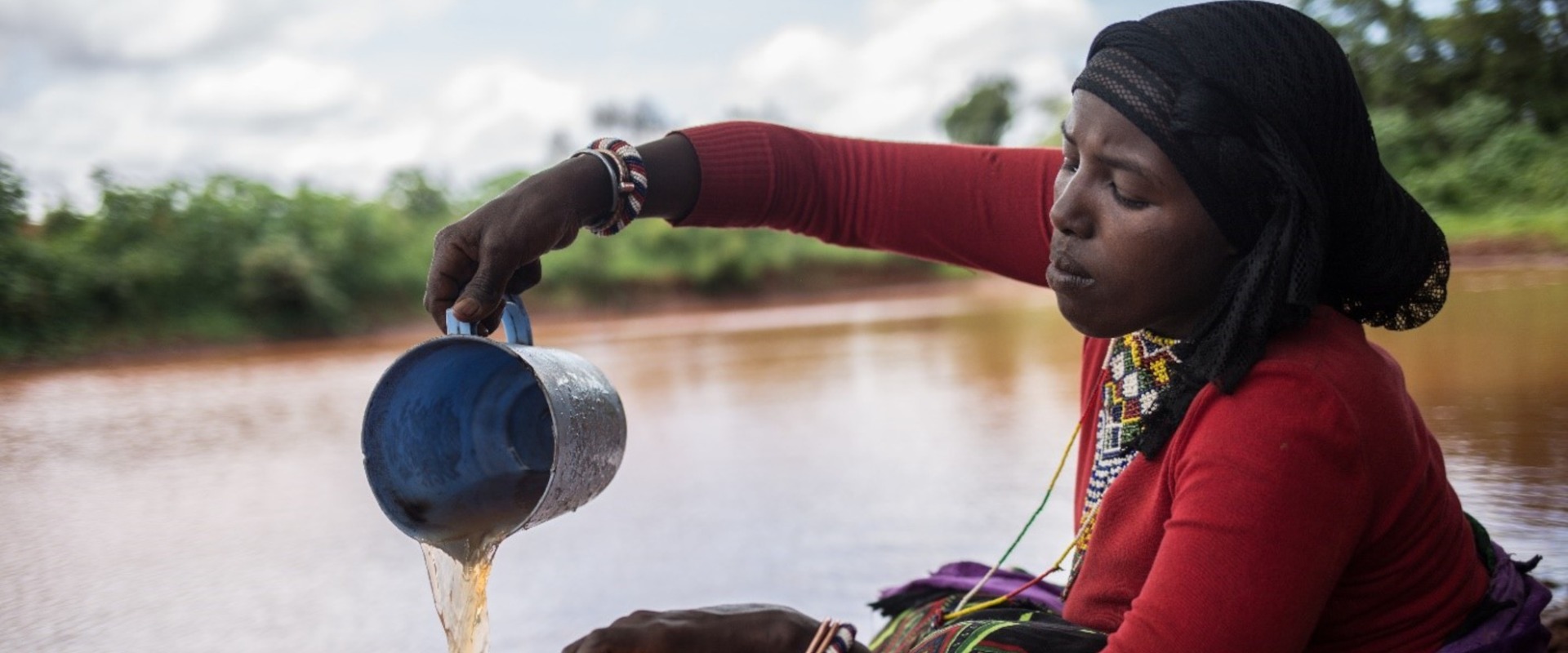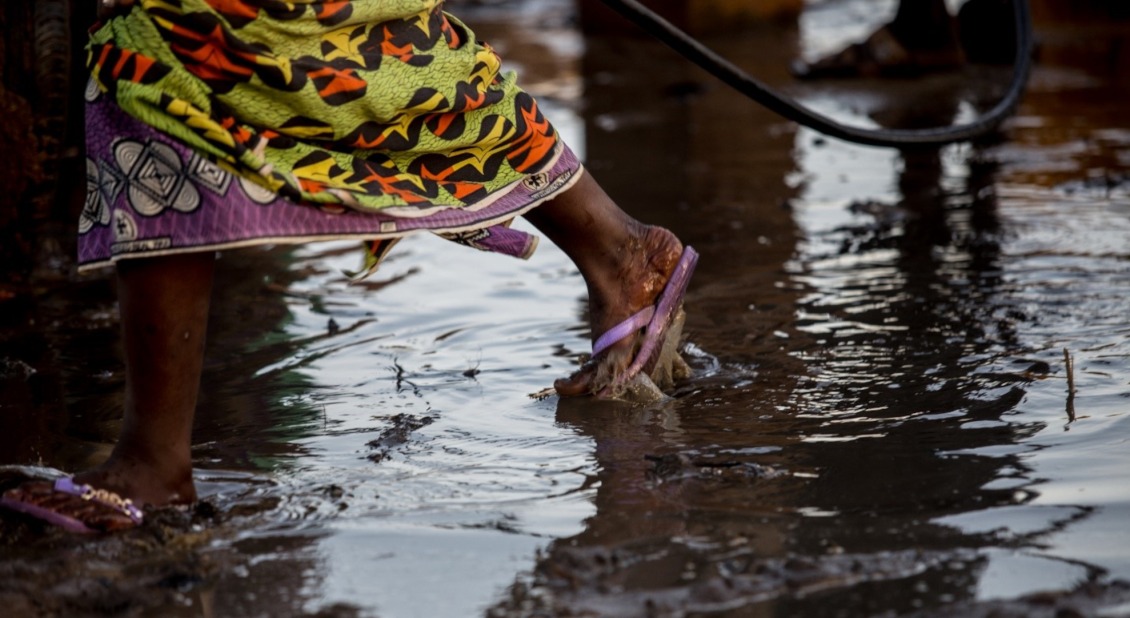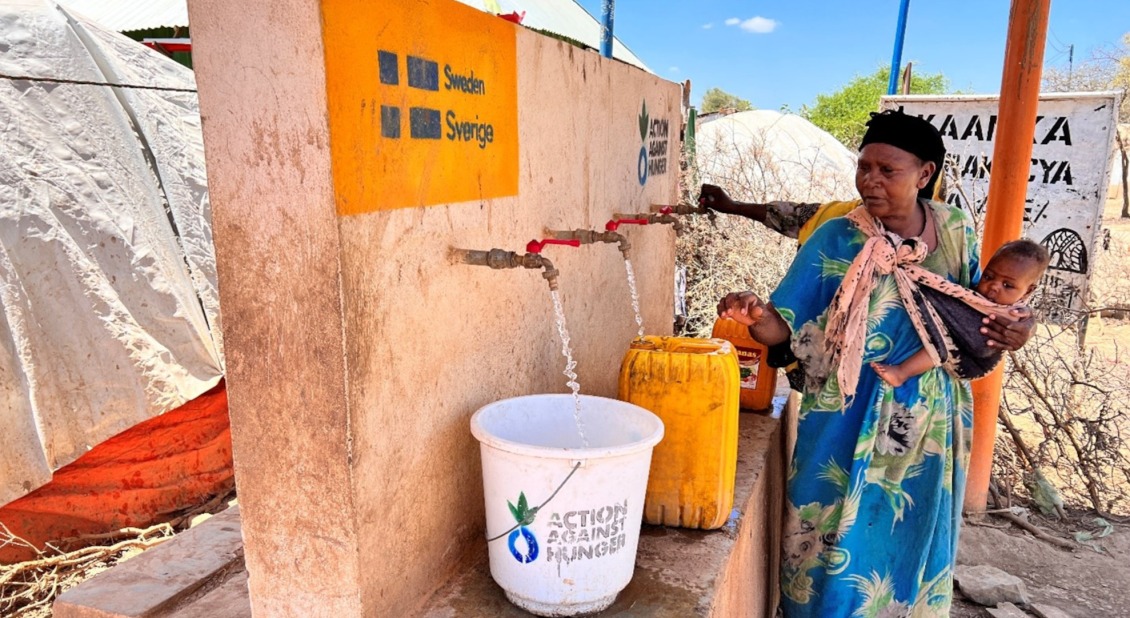
FAMINE IN SUDAN

Access to safe drinking water and proper sanitation is not just a basic need; it’s the cornerstone of healthy communities and essential for good nutrition. However, during and after emergencies, people are at significant risk of contracting infectious diseases from inadequate sanitation, poor hygiene practices, and lack of access to safe water.
Without clean water, illnesses like diarrhea, parasites, and chronic intestinal inflammation are common. They can prevent people from absorbing key nutrients and make them more susceptible to malnutrition and other health issues.
Inadequate access to water, sanitation and hygiene (WASH) also poses significant risks to women and girls. Beyond facing infectious diseases, they are also more vulnerable to harassment, violence, and injury when walking long distances to collect water or use a toilet.

To maintain the health, safety, and dignity of people affected by crises, particularly women and girls, the Global Emergency Nutrition and Response Program (GENRP), supported by Global Affairs Canada, focused on improving water, sanitation, and hygiene (WASH) services in crisis-affected regions.
Over the course of three years, our teams undertook several initiatives:
In extreme situations of drought or insecurity, safe drinking water was provided through water trucking, ensuring communities had reliable access to clean water even in the harshest conditions. Through our water trucking initiatives, we reached over 64,000 people.
To ensure that hard-to-reach communities had access to clean water during and after a crisis, our teams repaired and constructed nearly 300 water supply systems. For the upkeep of these systems, local water committees, composed of elected community members, were established and trained to independently manage water sources and sanitation infrastructure. These committees emphasized expanding the leadership role of women in decision-making and were organized to model good sanitation and hygiene practices for their communities, ensuring these practices continue long after initial interventions.
By constructing over 1,700 sanitation facilities, the GENRP helped curb the spread of infectious diseases and provided safe spaces for women and girls. Shared toilets often pose safety risks, especially at night, making it crucial to offer private and dignified sanitation options. Additionally, hygiene and menstrual hygiene kits were distributed to 145,878 local households and community facilities, promoting better hygiene practices and reducing health risks from the spread of disease.

The Pushaina Suárez family confronts daunting challenges living in their remote village: food insecurity, unsafe water, lack of essential services, and overcrowding.
Their story changed dramatically after attending one of our GENRP rural mobile clinics, where they learned that their sons, Ismael and Aníbal, were suffering from acute malnutrition. This discovery led to their enrollment in a recovery program, sparking a glimmer of hope for their entire family.
Since joining the program, the Pushaina Suárez family has embarked on a transformative journey. Every week, they receive crucial education on nutrition, hand hygiene, safe food handling, and the significance of clean water consumption. They also learn about creating a healthy living environment and preventing infections.
Beyond knowledge, the family has also received practical support: a water filtration system, food packages, hygiene kits, and medical treatments to address infectious diseases.
“Action Against Hunger has taught us many things we weren’t doing before, like hand washing,” shared Didimo Pushaina. “Now that we are doing these things, and they are giving us good results. Our children are already much better.”
Over the past five years, the number of people in humanitarian need has steadily risen. Conflict, instability, and climate chaos have made access to affordable, nutritious food incredibly difficult for over 783 million people worldwide.
In response to this crisis, Action Against Hunger Canada, with support from Global Affairs Canada, launched the Global Emergency Nutrition Response Program (GENRP) in 2021. Spanning three years, the GENRP focused on delivering urgent humanitarian aid to 17 countries experiencing prolonged crises, including Ethiopia, South Sudan, Sudan, Syria, and Myanmar.
The program focused on improving nutrition for vulnerable groups by providing healthcare, water, sanitation, hygiene (WASH) services, mental health support, and sexual and reproductive health and rights services. Key to all these interventions was the empowerment of women, who play a decisive role in the health and nutrition of their families.
Join our community of supporters passionate about ending world hunger.